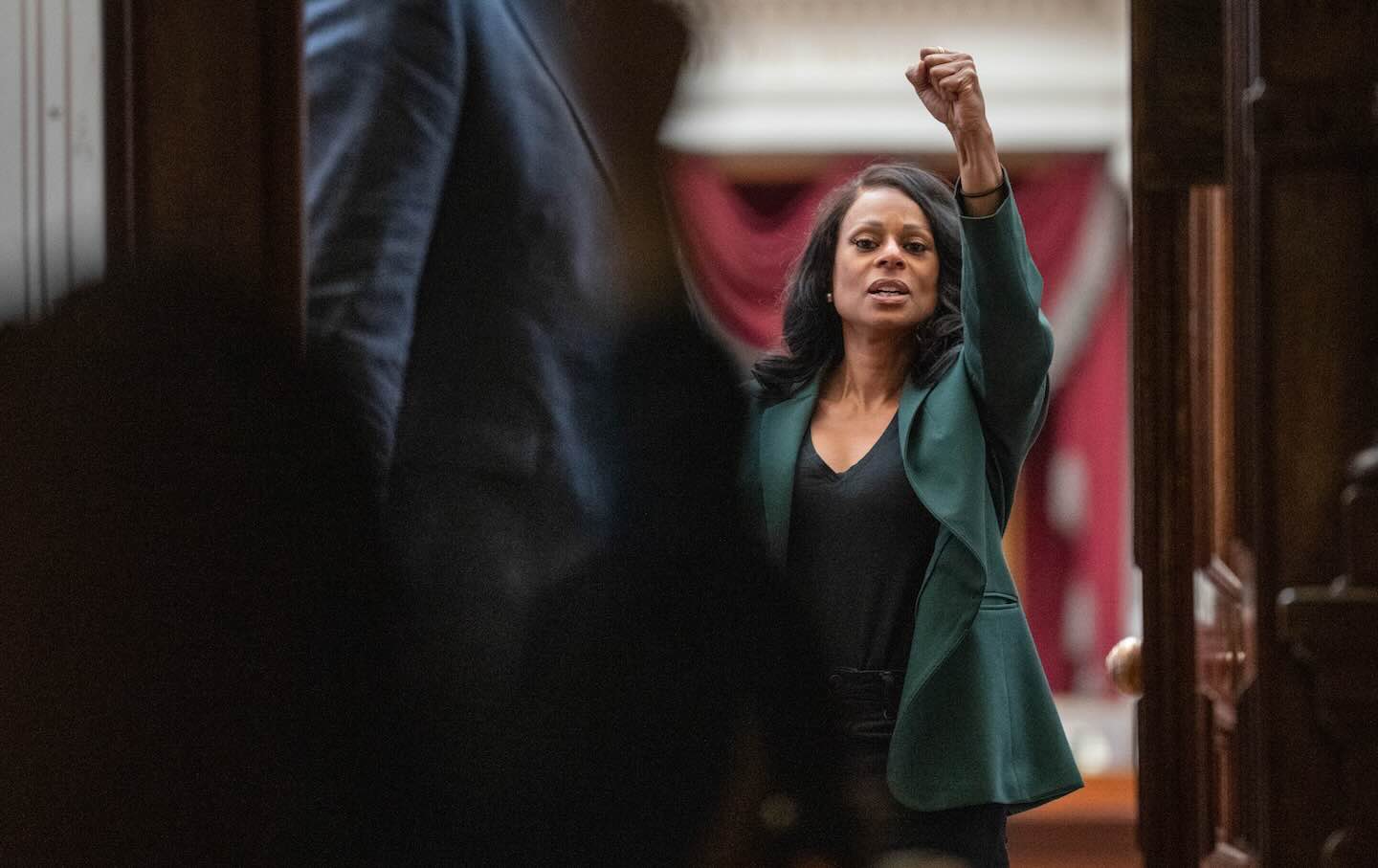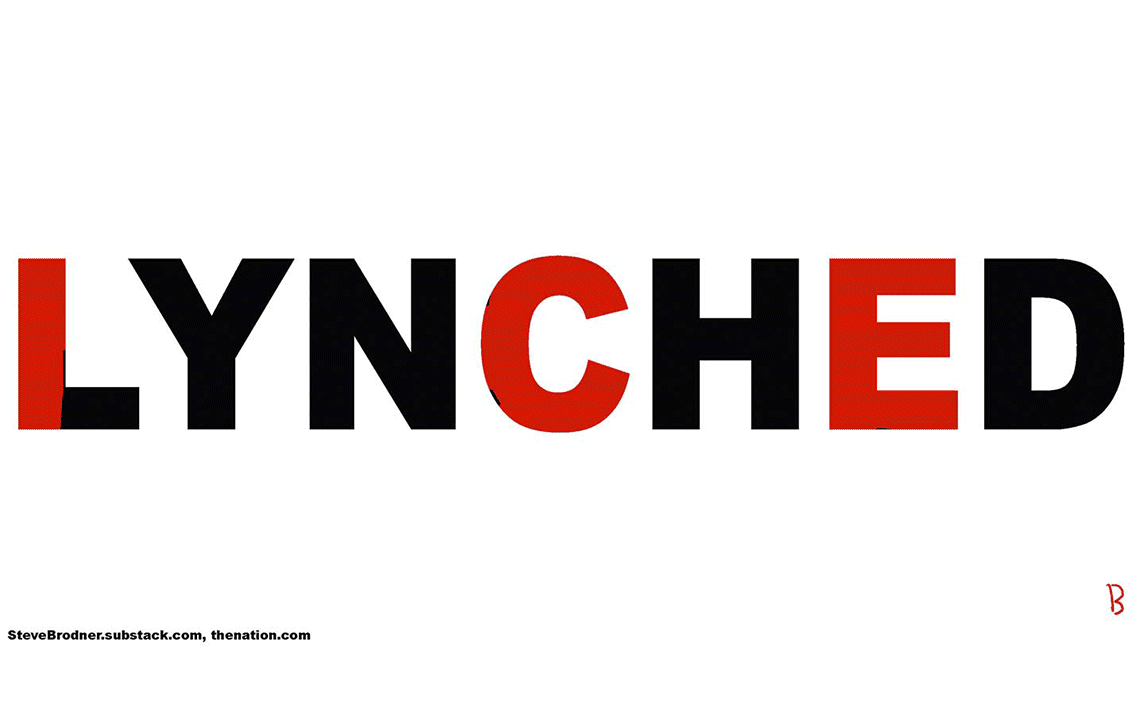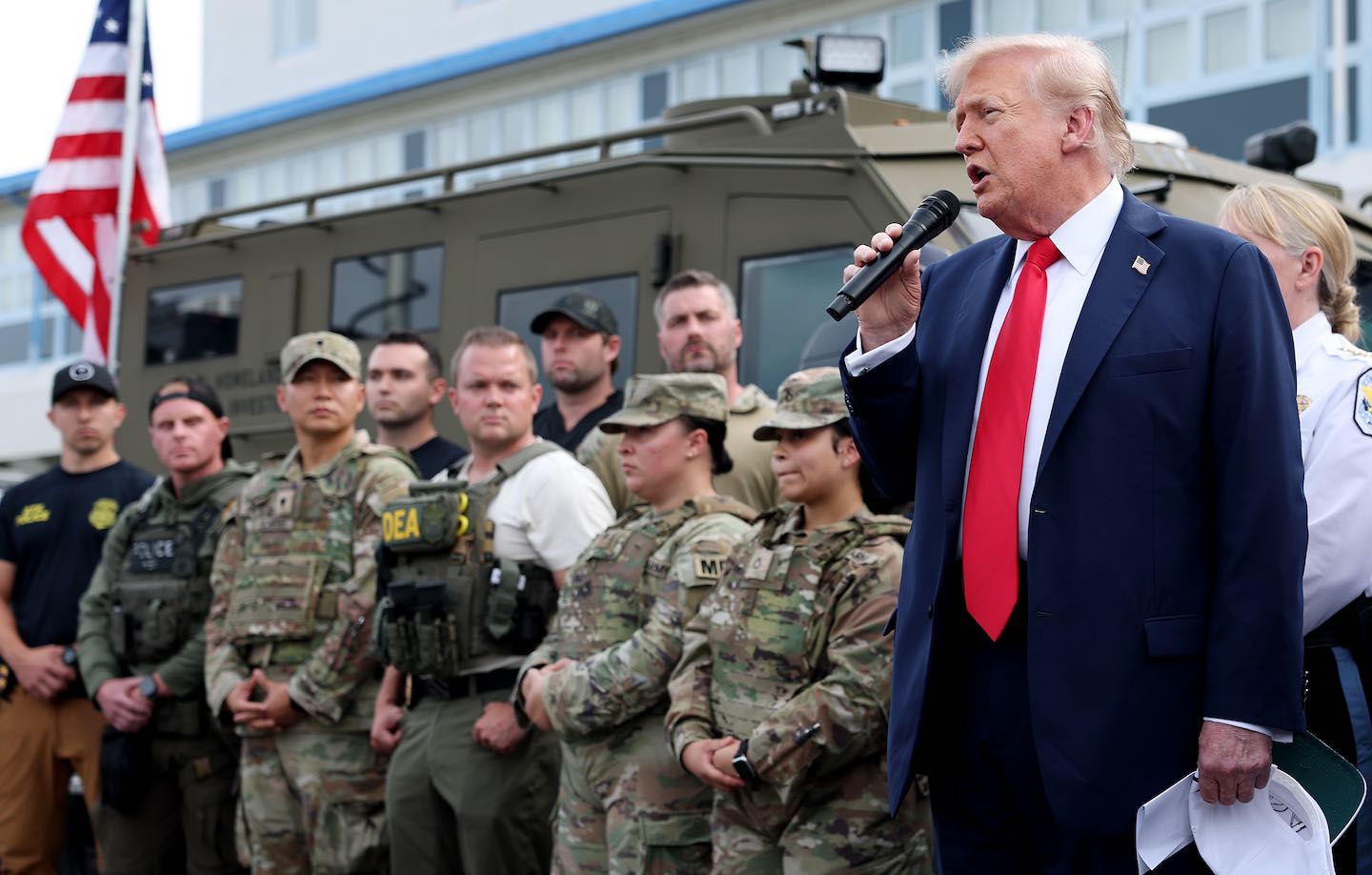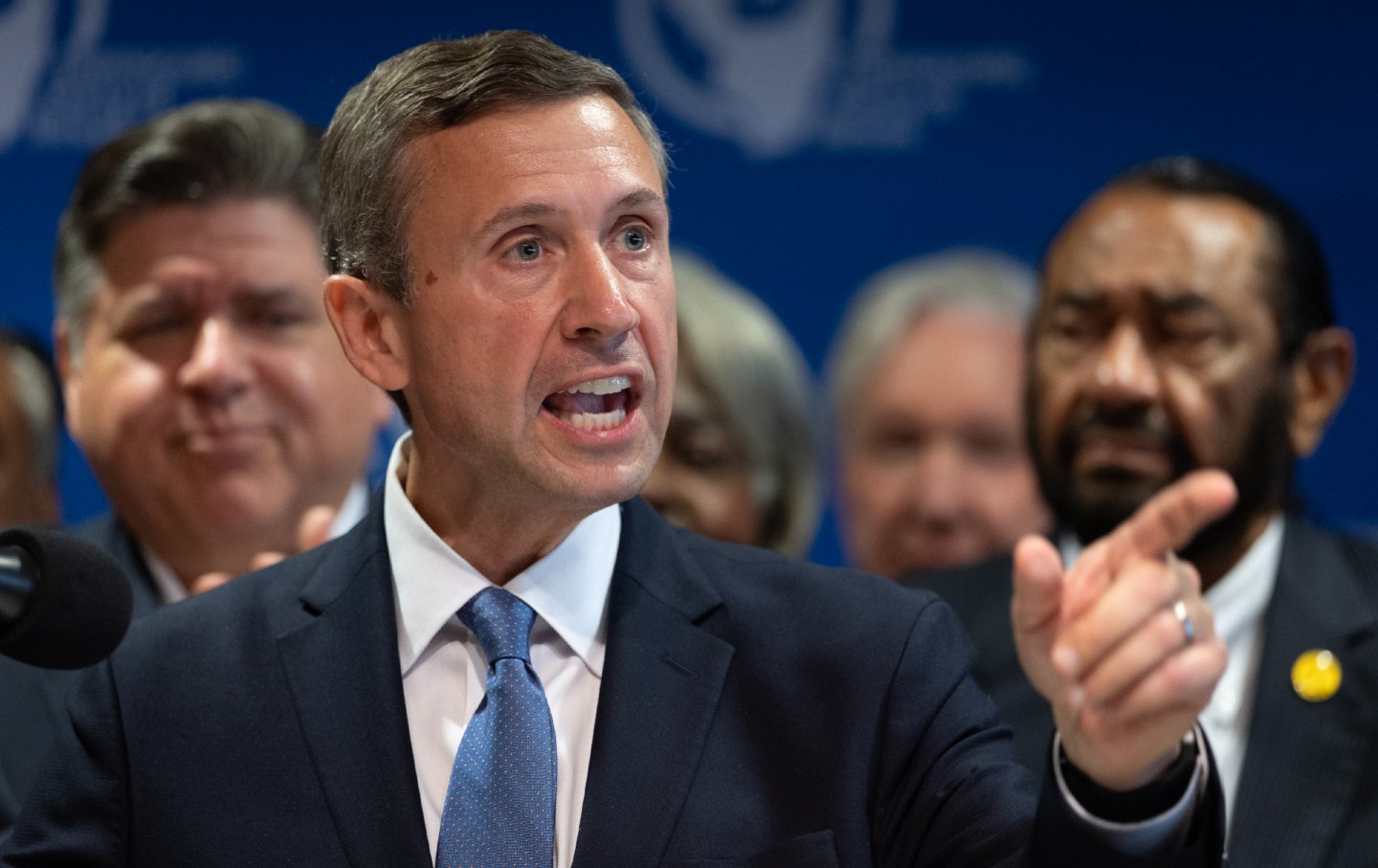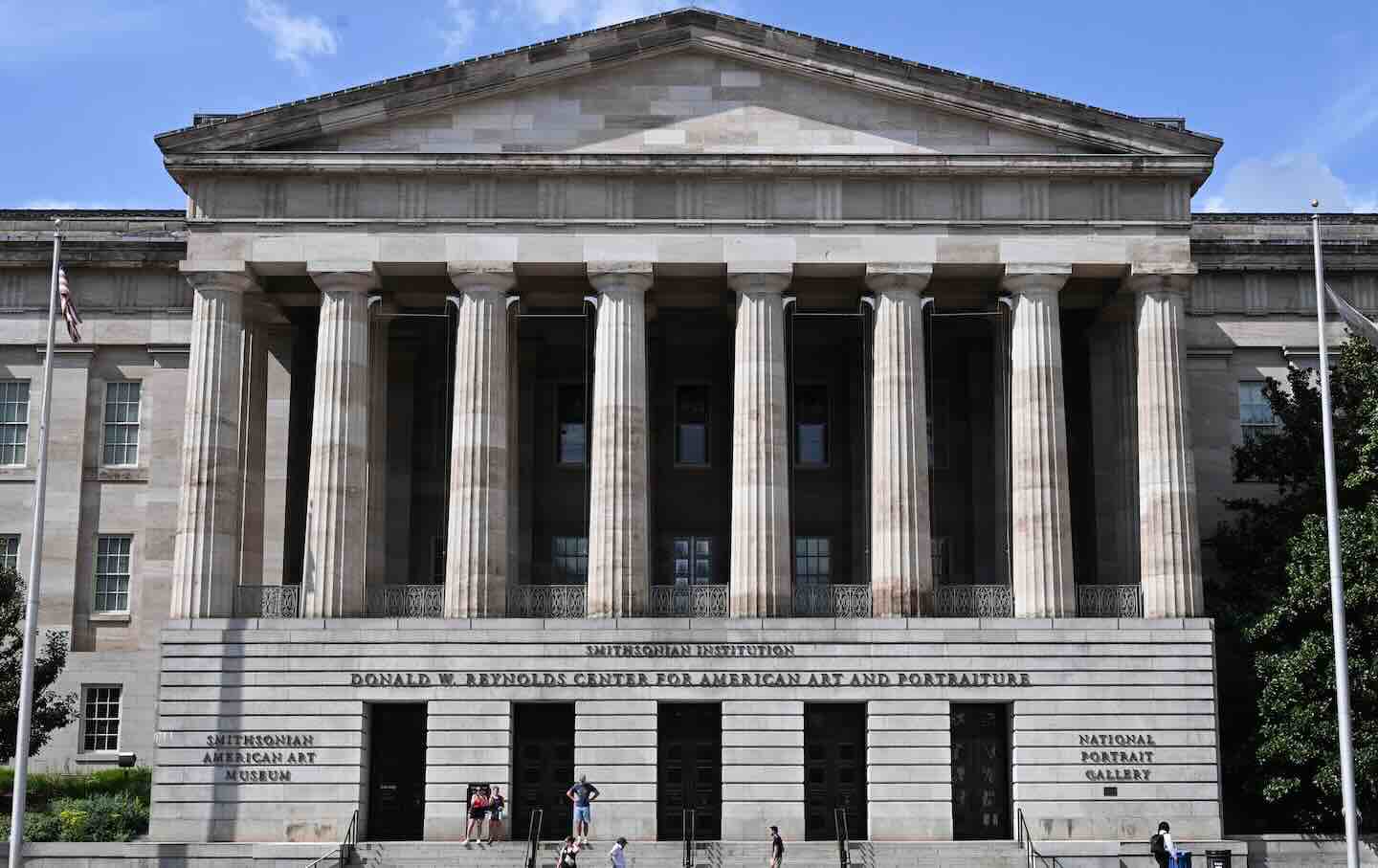A 150-Year Critique of the Electoral College
As far back as the 1870s, The Nation opposed the existence of the Electoral College as “so grotesque as to be almost ludicrous.”
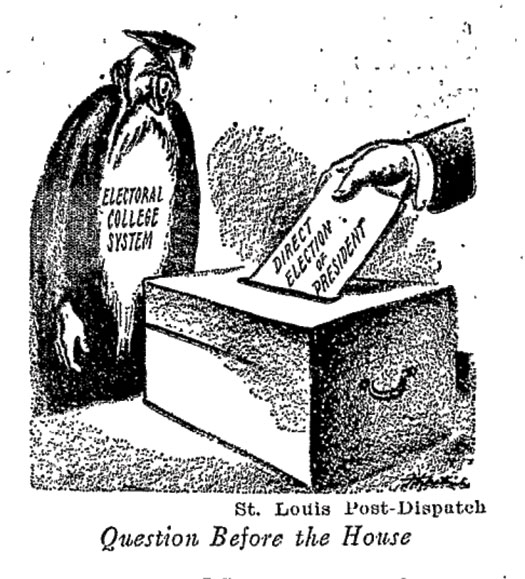
One of the many mysteries that future historians will have to try to explain as they mull what exactly befell the American Republic in the first quarter of this century is our failure to dismantle the decrepit piece of constitutional machinery known, bizarrely, as the Electoral College. Twice already, in 2000 and in 2016, a president was elected despite losing the popular vote—in the latter case, by nearly 3 million ballots. In 2020, the incredibly slow, needlessly complicated tallying of Electoral College votes left an opening for the defeated incumbent to launch an attempted coup d’état. The fact that this year’s gruesome election results spared us such a fiasco is a mighty slim silver lining.
As befuddled as future historians will be, Americans of the past would likewise be horrified to learn we let things go on this long. The Nation has opposed the Electoral College since at least 1876, when competing voter-fraud claims after the heated presidential contest between Rutherford B. Hayes and Samuel Tilden stalled the Electoral College count—and almost led to a second civil war. (Eventually, the crisis ended with a compromise that handed the victory to Hayes, a Republican, in exchange for his agreeing to sacrifice what remained of Reconstruction in the South.)
As the crisis unfolded, The Nation took aim, in an editorial, at the Electoral College. Its continued existence was “so grotesque as to be almost ludicrous,” the magazine said. While Alexander Hamilton had argued in The Federalist Papers that the system was designed to “afford as little opportunity as possible to tumult and disorder,” the Electoral College had never worked as intended. Instead, it had become a national embarrassment: Anyone looking for “a clear case of political sham and humbug,” The Nation argued, could “scarcely find a better instance in any country than the Electoral College of to-day.”
Fast-forward some 85 years, and The Nation was still singing the same song. After John F. Kennedy’s historically narrow 1960 victory, the veteran journalist Ted Lewis noted that a change of a few thousand votes could have swung the election to Richard Nixon. Observing that the close call had produced an “unprecedented public revulsion against the complicated electoral-college procedure,” Lewis warned that the institution would eventually have to be scrapped “when the nation, in some future Presidential election, finds its will has been thwarted to the point where it revolts against the results.” The national will has been thwarted twice since Lewis made that prediction—and still we wait for the revolt.
Take a stand against Trump and support The Nation!
In this moment of crisis, we need a unified, progressive opposition to Donald Trump.
We’re starting to see one take shape in the streets and at ballot boxes across the country: from New York City mayoral candidate Zohran Mamdani’s campaign focused on affordability, to communities protecting their neighbors from ICE, to the senators opposing arms shipments to Israel.
The Democratic Party has an urgent choice to make: Will it embrace a politics that is principled and popular, or will it continue to insist on losing elections with the out-of-touch elites and consultants that got us here?
At The Nation, we know which side we’re on. Every day, we make the case for a more democratic and equal world by championing progressive leaders, lifting up movements fighting for justice, and exposing the oligarchs and corporations profiting at the expense of us all. Our independent journalism informs and empowers progressives across the country and helps bring this politics to new readers ready to join the fight.
We need your help to continue this work. Will you donate to support The Nation’s independent journalism? Every contribution goes to our award-winning reporting, analysis, and commentary.
Thank you for helping us take on Trump and build the just society we know is possible.
Sincerely,
Bhaskar Sunkara
President, The Nation

